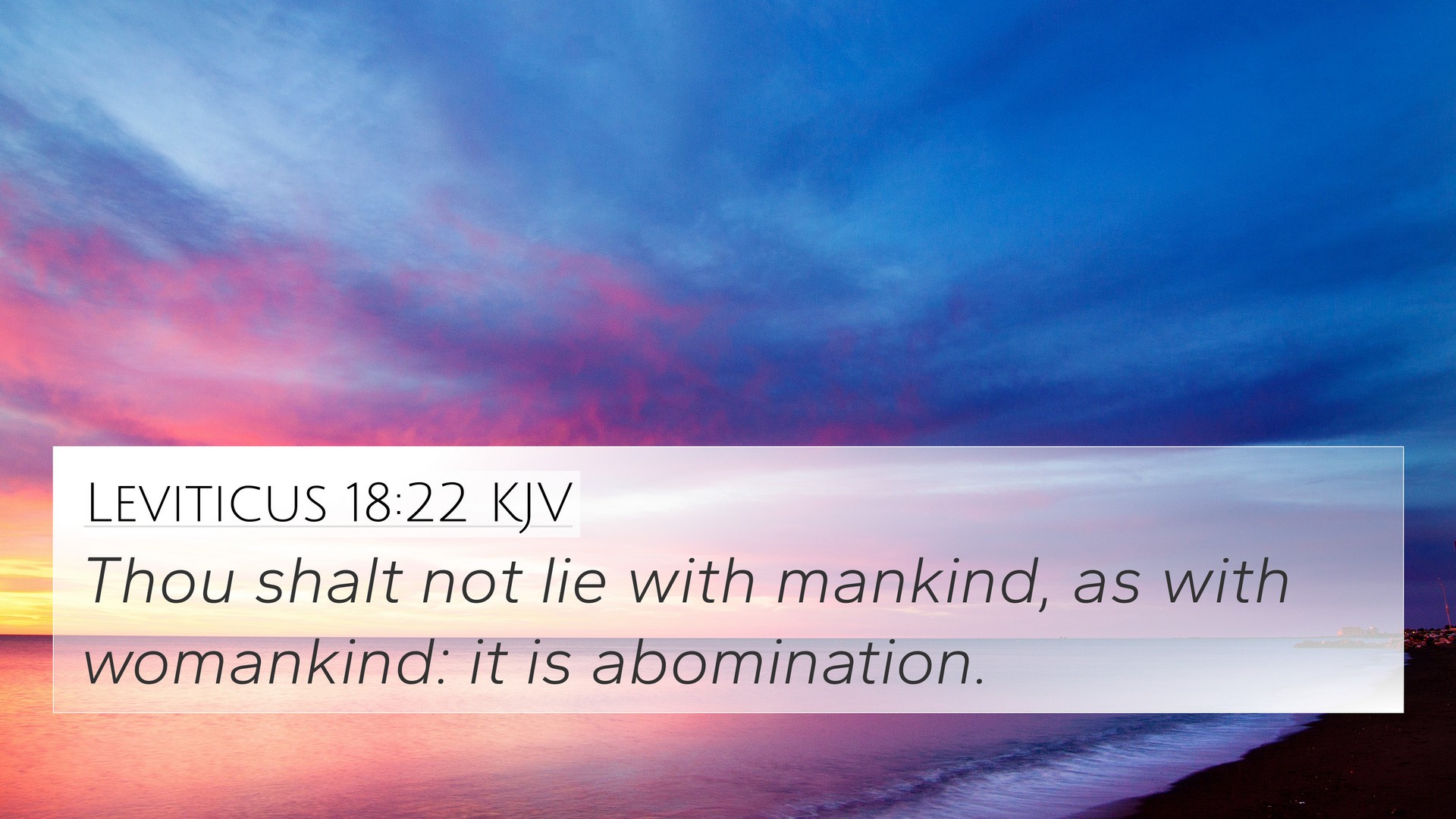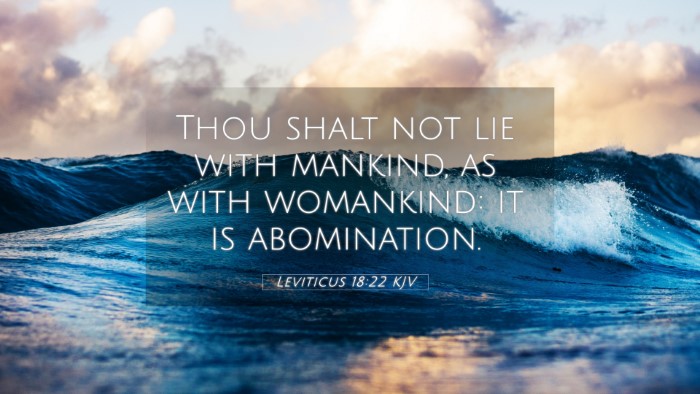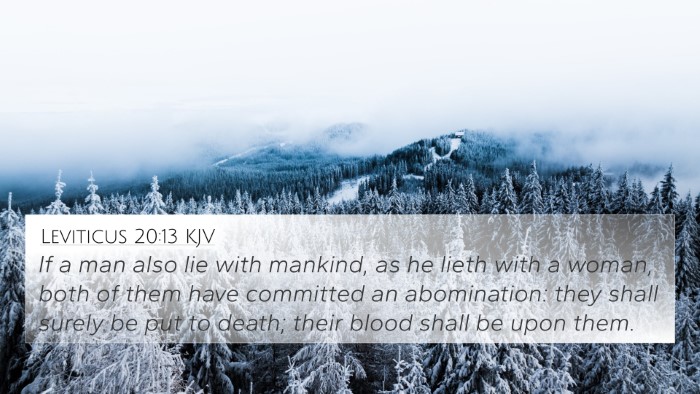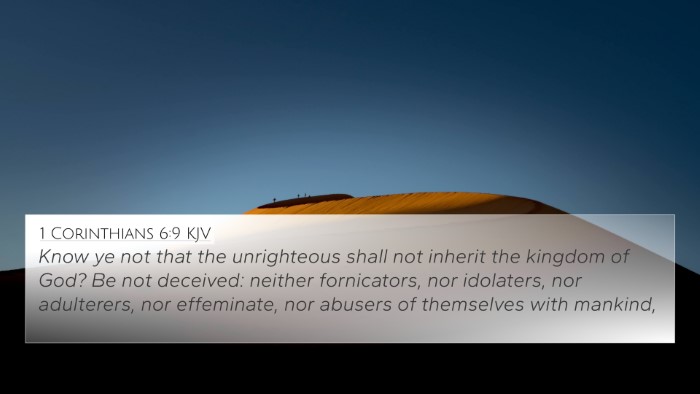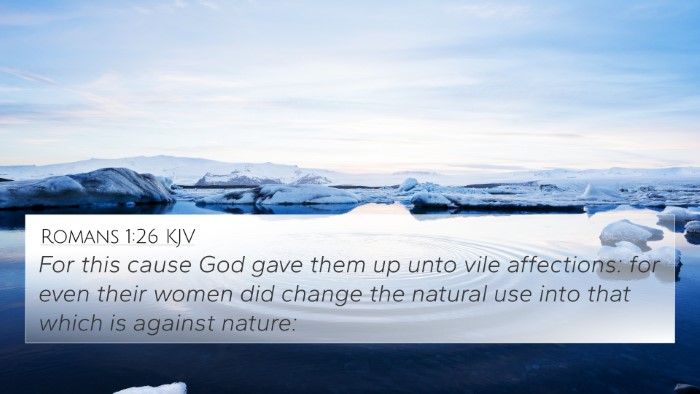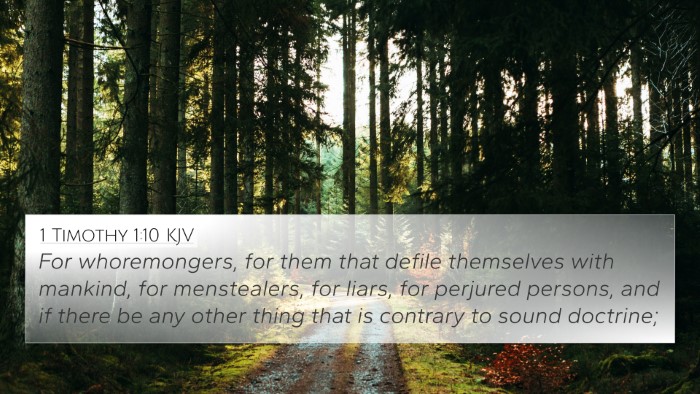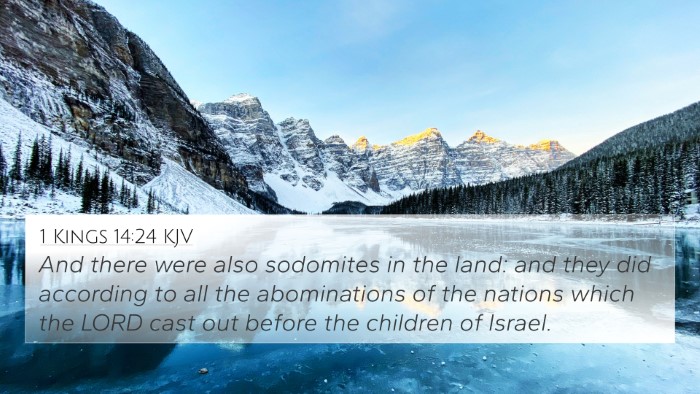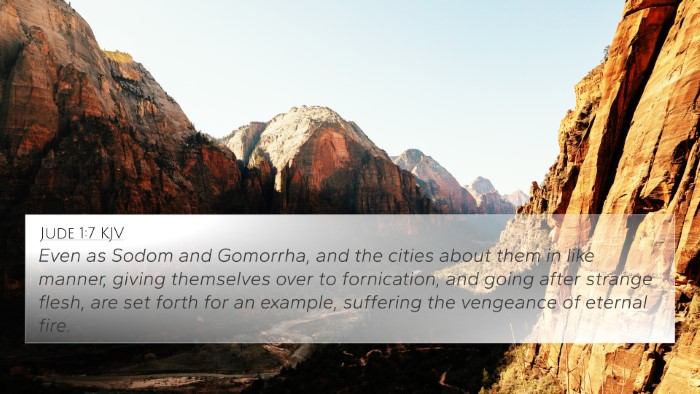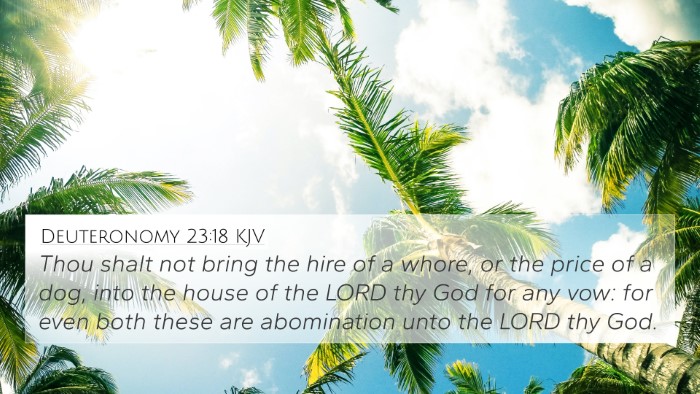Understanding Leviticus 18:22: A Combined Commentary
Leviticus 18:22 serves as a crucial text in discussions regarding moral and sexual ethics within the biblical framework. The verse reads, “Thou shalt not lie with mankind, as with womankind: it is abomination.” This directive not only reflects the ethical standards set forth in the Mosaic Law, but it also encapsulates broader theological implications regarding human sexuality, holiness, and the nature of relationships as defined by God.
Meaning and Context
When interpreting Leviticus 18:22, it is essential to consider its context within the holiness codes that characterize the Book of Leviticus. This book, predominantly directed at the Israelites, serves to establish the covenant conditions set by God, emphasizing the need for purity and separation from surrounding nations.
- Moral Instruction: Matthew Henry notes that this verse explicitly prohibits homosexual acts, reinforcing the idea of sexual relations being sanctioned solely within the bounds of heterosexual marriage.
- Theological Implications: Albert Barnes discusses the broader theological narrative, suggesting that these laws represent God’s intention for human relationships to reflect His own nature—planted in the design of complementary partnerships.
- Holiness and Separation: Adam Clarke emphasizes the importance of being a distinct community of faith, which reinforces the idea that God’s people are called to live according to His statutes that deviate from worldly practices.
Cross-Referencing Related Bible Verses
To enhance our understanding, we acknowledge several Bible verses that relate to Leviticus 18:22, creating cross-references that reveal the continuity in biblical teaching on sexuality and morality:
- Genesis 19:4-5: The story of Sodom and Gomorrah underscores the biblical condemnation of homosexual acts.
- Romans 1:26-27: Paul explicitly mentions the unnatural relations between individuals of the same sex as contrary to God's created order.
- 1 Corinthians 6:9-10: This passage lists those who will not inherit the kingdom of God, including "the effeminate" and "abusers of themselves with mankind," thus echoing Leviticus’s prohibitions.
- Jude 1:7: Reference to Sodom and Gomorrah as an example of God's judgment against sexual immorality and unnatural desires.
- Ephesians 5:3: Encouragement to avoid any hint of sexual immorality, aligning with the calls for holiness in Leviticus.
- 1 Timothy 1:9-10: Paul reiterates the law's usage against immoral behaviors, supporting the call for a holy lifestyle.
- Matthew 19:4-6: Jesus affirms heterosexual marriage as the divine standard, quoting Genesis, therefore reinforcing the intended design of sexual relationships.
Thematic Connections and Ethical Reflections
The discussions surrounding Leviticus 18:22 often lead to broader themes of moral absolutism versus cultural relativism. Public domain commentaries provide a rich dialogue on the implications of these verses:
- Judgment versus Compassion: While some interpretations focus on divine judgment, others promote a nuanced understanding of grace and repentance.
- The Role of the Law: Commentators frequently explore the purpose of the Mosaic Law, questioning its relevance and application today, particularly around sexual ethics.
- Community Standards: The ethical implications of Leviticus 18:22 extend beyond individual behavior to the community's moral standards and the consequences of deviating from them.
Conclusion
In conclusion, Leviticus 18:22 stands as a significant commandment within the biblical text, shedding light on the nature of human relationships as envisioned by God. Through various public domain commentaries, we gain a deeper understanding of the verse’s implications regarding morality, ethical living, and community life. The cross-references provided further enhance our comprehension of how these themes resonate throughout the scriptures, demonstrating the interconnectedness of biblical teachings concerning sexuality and holiness.
Tools for Further Study
For those interested in exploring these themes more deeply, it is recommended to utilize tools for Bible cross-referencing such as:
- Bible concordances
- Cross-reference Bible study materials
- Comprehensive Bible cross-reference guides
- Bible chain reference systems
Engaging with these resources can significantly aid in identifying connections between Bible verses, fostering a deeper understanding of scripture as a unified whole.
